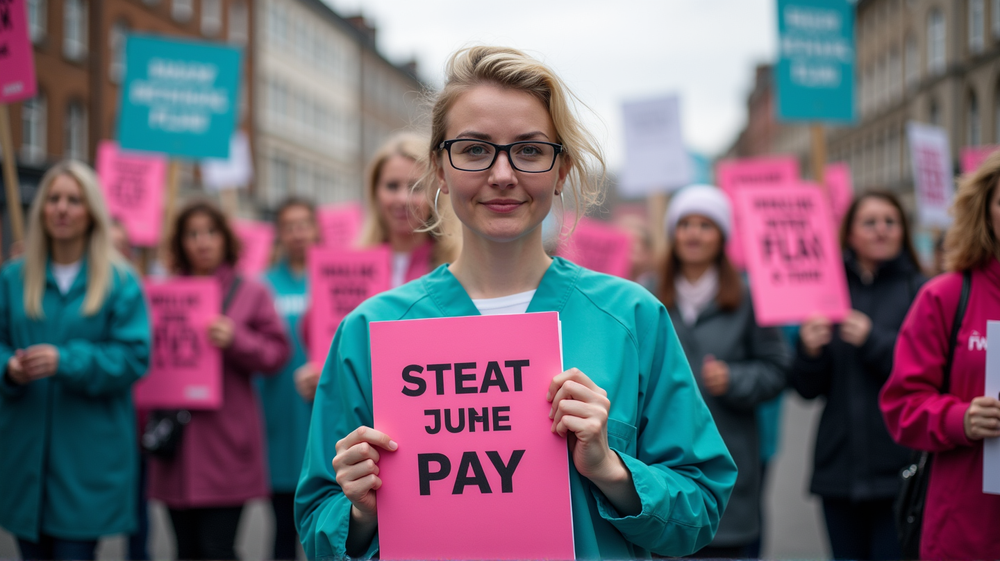The healthcare sector in Northern Ireland is boiling over with rising tensions as health staff unions stand firm against a renewed pay offer, hinting at the possibility of industrial action. As negotiations resume this Monday, the commitment to pay parity emerges as the central pillar of the unfolding drama, affecting healthcare dynamics not just within Northern Ireland but resonating across the UK.
The Stalemate over Pay Offers
At the heart of the issue is the Department of Health’s (DoH) offer of a 3.6% pay rise from October 2025, which unions have criticized for not backdating these raises to April, unlike agreements reached for their colleagues elsewhere in the UK. This has driven union leaders towards a potential strike ballot, a significant step reflecting their discontent over the discrepancies inherent in pay policies. As stated in BBC, the UK government had successfully navigated pay agreements for England and Wales with a confirmed 3.6% rise, sparking dissatisfaction among Northern Ireland’s health unions.
Government’s Financial Constraints
Health Minister Mike Nesbitt, wrestling with the department’s tight budget, insists on working in good faith and maintaining discussions under pressing financial constraints. Yet, his assurances offer little comfort to the frontline workers intent on achieving pay parity. In May, the challenge of finding £200m outside ministerial purview to support pay deals showcased the financial high-wire act that characterizes these negotiations.
The Role of Unions: From Words to Action
Unison and the Royal College of Nursing (RCN) emerge as major players, with RCN’s Prof. Rita Devlin and Unison’s John Patrick Clayton articulating strategies that emphasize dialogue but prepare members for potential industrial action. They underline the importance of pay parity not just as a matter of current financial benefit but as an essential strategy to recruit and retain staff crucial for the health service’s future.
Historical Context and the Path Forward
Historically, the UK’s Agenda for Change framework, established to ensure fair pay practices, has guided pay settlements. Yet, with Northern Ireland’s health pay devolved, discrepancies have emerged, feeding into broader grievances that echo past industrial tensions.
Losing Sight of Parity
For health workers in Northern Ireland, the journey toward fair pay is marred by systemic issues. Earlier statements of finding financial solutions are at odds with current fiscal realities, fueling dissatisfaction. As unions reaffirm their commitment to equality in pay, the looming threat of strikes becomes an earnest message to legislators.
Reassessing Priorities
The need for resolving this pay dispute transcends financial calculations alone, touching on the fundamental principles of equity and workforce stability. As discussions proceed, the focus remains on whether the DoH can navigate a satisfactory resolution without compromising its fiscal responsibilities.
The clock ticks away for Northern Ireland’s health unions and government bodies to reconcile their differences before industrial actions commence, sending rippling effects through healthcare infrastructure and beyond.












